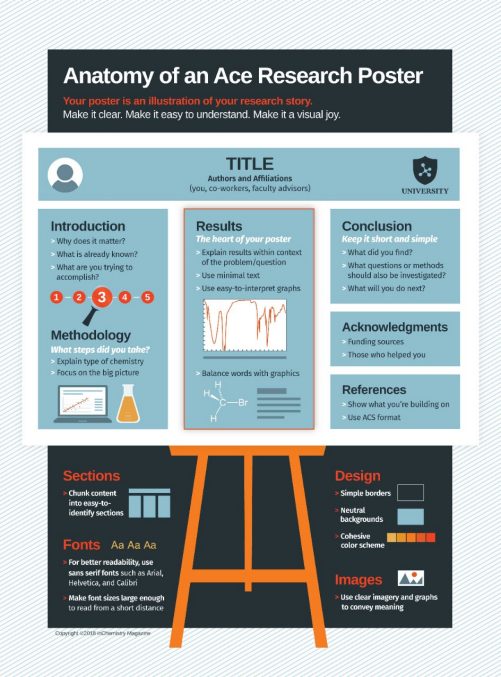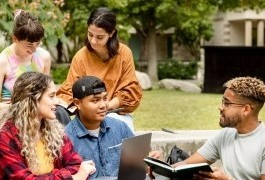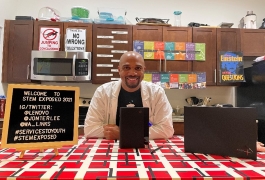A Guide to Conference Etiquette
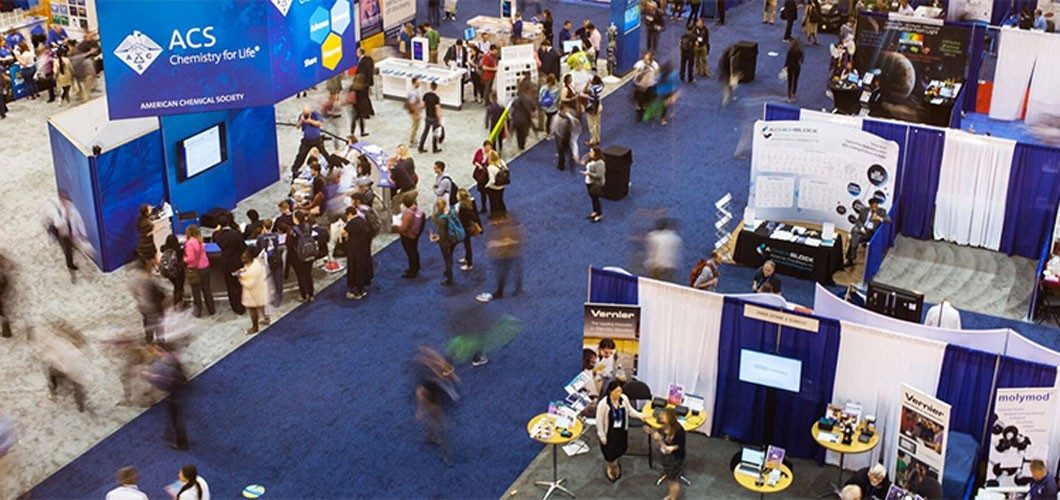
While previous generations took etiquette guidance from Emily Post and Miss Manners (look them up on Google), the modern era has a more relaxed approach to social interactions that can lead to a lot of confusion. Consider ACS national meetings. Sure, they are professional events. But the professionals are taking a break from their normal work routines, meeting people, learning about cutting-edge breakthroughs, and presenting research in a generally more relaxed environment. It is exciting, and the vibe is infectious.
With no Post-approved rules on conference etiquette, you may not know what to do. But don’t worry! If you’re staring down your first ACS national meeting or another professional conference, we’ve got a few simple tips on professional behavior that will stand the test of time.
What it means to be professional at conferences
Scientific conferences are held to advance science. At ACS meetings, chemists from around the world come to share their research and connect with like-minded professionals. So, the key is to have a positive respectful demeanor and stay focused on science and your professional growth in the field, remembering that’s why everyone else is there. Focusing on science and careers will help guide your actions and responses, so you can make the best professional impression on your future potential colleagues.
As soon as you arrive at the event—and every moment you are wearing a badge—you are representing your institution, your advisor, and your future career to potential colleagues, mentors, and employers. Even at social events, you are surrounded by other professionals who are observing—and possibly overhearing—you.
“We’re here to present ourselves in a professional manner,” says Amanda Carroll, a lecturer, academic advisor, and ACS student chapter faculty advisor at Tennessee Tech University. “You literally never know who you’re going to run into. You might run into somebody who can give you a job. You might run into somebody who will accept you into some kind of graduate or professional school. You need to make sure you’re putting your best self forward.”
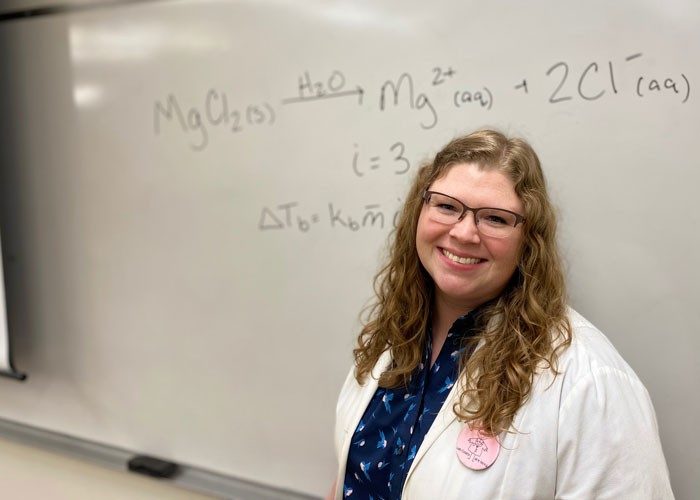
“Every interaction should be treated like a job interview,” says Amy Keirstead, a professor of chemistry and associate dean at the University of New England, in Maine, who also serves as an ACS student chapter faculty advisor. Dress professionally, shake hands, make eye contact, and be ready to discuss your work and theirs, she advises. Excellence in chemistry is uninfluenced by gender, ethnicity, nationality, sexual orientation, gender expression, marital status, political affiliation, etc., she adds. “You should be equally objective.”
Carroll’s and Keirstead’s advice is echoed in the ACS Volunteer/National Meeting Attendee Conduct Policy. The policy states that all attendees are responsible for creating an inclusive and positive environment. You accomplish this by treating everyone with equal respect, regardless of race, gender, religion, etc. You also need to obey local laws and safety precautions.
The policy also notes that physical contact should be limited. A strong handshake, for example, is an appropriate boundary. But hugging complete strangers or teasing someone who does not wish to shake hands is not.
And remember that the conduct policy is a standard not only for your own behavior and interactions but for how you are treated as well, by all ACS volunteers and attendees. If you see the policy being violated, speak up. Immediately find an ACS staff member (look for a blue stripe on the conference badge) and report as much as you can.
Advance preparation goes a long way
Getting prepared for a conference might seem overwhelming if you’ve not attended one yet—especially an ACS national meeting—but keep in mind that conference organizers want you to succeed and get the most out of being surrounded by fellow scientists. One way to get ready for a meeting is to read the program guide before you leave home (it’s always available online at the meeting website) or peruse the conference website, and read your registration e-mail carefully.
Be sure to follow the event hashtags on the social media platforms you use (#ACSPhilly for the ACS Spring 2020 meeting and #ACSSanFran for fall 2020); other conferences may also have meeting apps or Slack channels. Take note of where events will be located, how close your hotel is to the conference venue, and the weather at the location. There are a number of ACS resources to help you along, including articles in inChemistry and conference prep videos (Check out I’m a professional chemist now! and New Rules for Presenting Posters on Facebook). You can also talk to your ACS student chapter advisor or professors about what to expect and what to do at the meeting.
If it’s your first ACS meeting, pace yourself, Keirstead advises. At spring ACS national meetings, a helpful event to attend at the start of the conference is “Making the most of your first national meeting,” part of the student program. You should also read the venue map so you know how far apart events are. Conference days can be long even for the most energetic and extroverted.
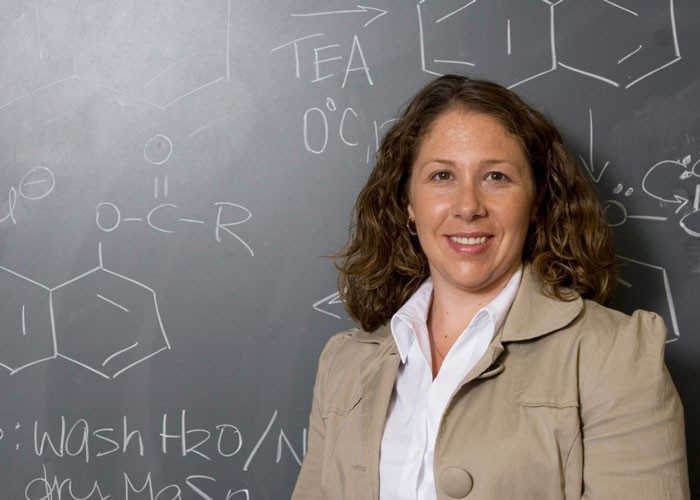
Bring copies of your résumé for the Grad School Fair and Career Job Fair (with digital backups for emergencies). If you’re presenting, practice your presentation as much as you can before the conference—standing up, out loud! The better you know your presentation, the more fluently you’ll be able to answer questions, respond to interruptions, and demonstrate your mastery of the topic. (Bring digital copies of your poster or slides, too.)
For posters, you may feel inclined to write out a 20-minute speech. Don’t! Instead, prepare a two-minute overview of your poster that summarizes your work, then stop and ask for questions. Engaging your audience is a key part of networking. To avoid talking “at” visitors, invite them into a conversation about your research; try asking about their field or what part of the poster they would like to know more about.
“Especially at the spring meeting, there are so many students presenting research posters. If somebody is coming around and they’re trying to talk to several people, you want to be mindful of that,” says Carroll. Some will be interested in your work, and you’ll be prepared to go into further detail. Others will move on.
Keirstead agrees. When someone says, “Tell me a little about your work,” don’t hold them captive for 15 minutes.
For poster sessions and other events where you’ll be interacting with grad school and job recruiters, prepare a similar two- to three-minute overview about yourself, Carroll advises. Include your major, concentration, career goals, and the type of research you might be interested in pursuing. Having a well-prepared personal “elevator pitch” will come in handy at the various professional and social functions taking place.
Comfort is going to be very important. Dressing in layers will help shield you from cool drafts in the ballrooms as well as stuffy session rooms. Wearing comfortable shoes (and bringing backups) will keep you on your feet for long days on a thinly carpeted concrete floor. And you’re going to need food energy, so be sure to keep a water bottle and snack in your bag to fuel up between meals.
Using etiquette to your advantage
ACS strives for a “collegial, inclusive, positive, and respectful environment.” At conferences, you’re not only a consumer, you’re part of a community, and it’s up to you to create connections and to be a good community member.
As far as forming connections, timing is everything! Oral sessions run in blocks organized around similar topics. “Stay through the entire session,” Carroll encourages. “You’ll build on your knowledge as the presentations progress and learn more from each presentation and the subsequent questions.” Plus, others will see you as engaged in chemistry, which is always a good impression to make on chemical professionals.
When you’re attending talks, be on time and stick around afterwards. “Be mindful of the speakers,” Carroll says. “These people are traveling—often from far away; they’re giving their time to come share either their research or something in a technical session with you.” It can be highly disruptive to both speakers and the audience when people arrive late or—even worse—leave early. (Would you want to see a bunch of people bolt during your talk—or before you even get to the podium?)
If you can’t avoid being late, here’s how to enter a meeting room respectfully: Open doors slowly and close them gently with your hands (They slam!). Sit toward the back of the room or stand along the wall until a break. Be as quiet as possible so the speaker and the audience can maintain their focus. Most ACS talks are only 15-20 minutes long, so you’ll be able to move freely soon enough.
Also be mindful of when you are outside of a session room with talks in progress. Groups of students who are super excited traveling in a pack don’t necessarily notice their volume—volume in terms of noise, volume in terms of size, Keirstead says. Conference room walls are notoriously thin, so keeping your hallway noise to a minimum shows respect to the speakers and audiences in the sessions. In addition to monitoring your volume, she also recommends that you leave room for others to move in and out of rooms and through the hall if you’re congregating in a group.
Finally, Carroll and Keirstead agree that phone usage during meetings is extremely distracting. Instead of taking notes on your device, bring a notebook to take notes, even if you usually use a device. Not only will you avoid missing something important because you got caught up in digital distractions, you will show all your potential employers, mentors, advisors, and contacts that you are more interested in what the speaker has to say than your device.
“Nothing replaces those in-person interactions you can have at a conference,” Keirstead says. “You can read an article, but being able to talk about the science in an article with the person who did it, and ask your questions, and have that conversation is just a whole new level. At conferences you often get things that aren’t published yet. You’re seeing cutting-edge research and getting the first glimpse of things.”
Don’t miss it.

